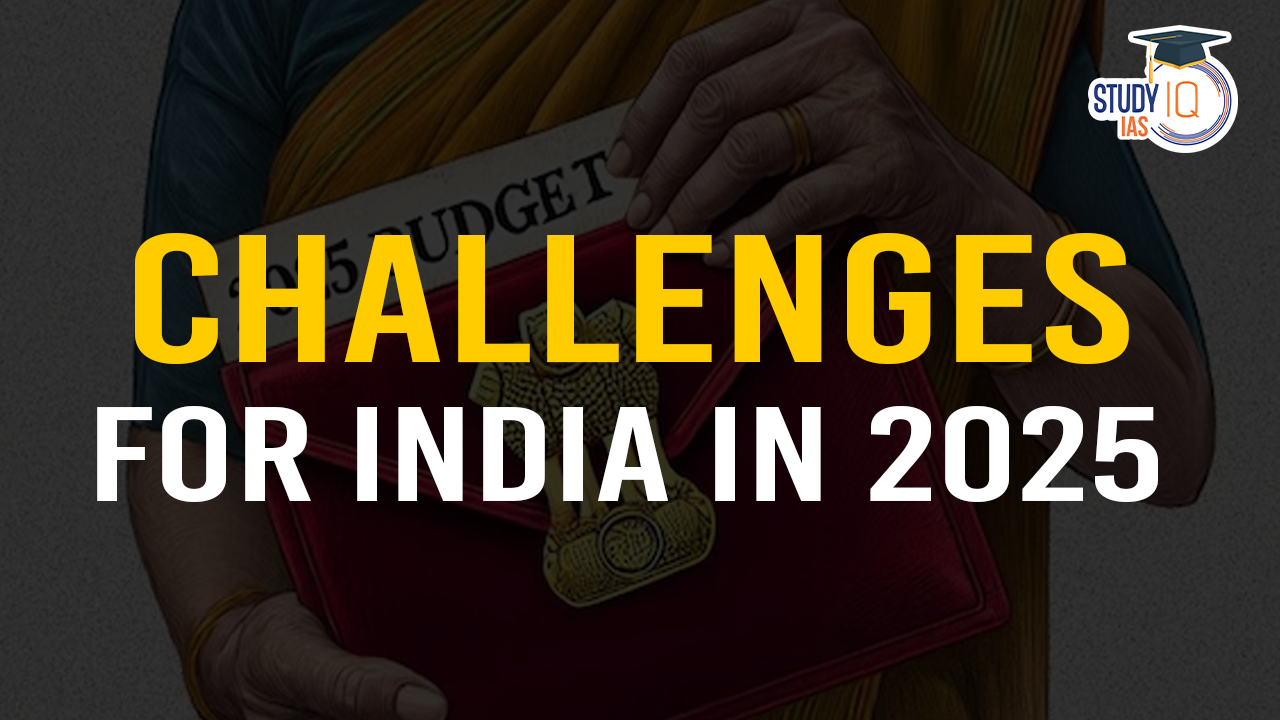Table of Contents
Context: India stands out globally due to economic growth and political stability, amidst a world witnessing profound economic and geopolitical shifts.
Challenges for India in 2025
China Relations
- Recent Developments:
- Border Negotiations: Apparent disengagement at the Line of Actual Control (LAC) in Ladakh.
- Resumption of Talks: Special Representatives’ discussions on border issues and meetings between PM Modi and President Xi Jinping after five years.
- Despite these, the border conflict remains unresolved, necessitating vigilance.
- Strategic Moves by China:
- Strengthened Global South security cooperation:
- Facilitated Palestinian reconciliation talks in Beijing.
- Advanced the Global Security Initiative (GSI) with African nations in counter-terrorism, disaster management, and public health.
- During the SCO Summit in Pakistan, China muted India’s voice, leveraging the absence of the Indian PM.
- Strengthened ties with Japan during the APEC Summit in Peru, securing agreements for mutual strategic interests.
- Strengthened Global South security cooperation:
South and West Asia: A Regional Churn
South Asia
- Bangladesh:
- India faces hostility from the new caretaker regime after Sheikh Hasina’s ouster.
- Raises concerns over the effectiveness of India’s neighbourhood policy.
- Other Neighbours:
- Nepal, and Sri Lanka: Appear to be fair-weather friends.
- Maldives: Stance towards India remains uncertain.
- Bhutan: The current regime displays a greater inclination towards balancing ties with China.
- Pakistan: Continues to maintain its inimical position.
West Asia
- Syria:
- Ouster of Assad Regime: Likely to destabilize the region further.
- New Leadership: Sunni group Hayat Tahir al Shams (HTS), led by Ahmed Hussain al Sharaa (formerly Abu Mohammed al Julani), is attempting to project a moderate stance.
- Implications:
- Decline in the Shia axis and Iran’s influence in the region.
- Potential weakening of militias like Hezbollah.
- Israel emerges stronger despite criticism for Gaza pogroms.
- India’s Position:
- Assad was viewed as a stabilizing force, especially during the Arab Spring.
- The new Sunni leadership brings uncertainties to India’s diplomatic stance.
- Iran:
- Influence waning, impacting its revolutionary role in West Asia since 1979.
- Potential internal turmoil in Iran, affecting Shia militias and the broader Shia community.
Emerging Threats in 2025
Cybersecurity
- Rising Digital Threats:
- Convergence of technologies threatens national infrastructure.
- Cyberattacks increased dramatically, targeting major companies and government institutions.
- Data Points:
- Denial of service and ransomware attacks are on the rise.
- Trend expected to grow exponentially in 2025 and beyond.
Conclusion
India stands at a crossroads with both opportunities and challenges ahead. While it has managed to maintain stability amidst global unrest, the evolving geopolitical dynamics require careful attention. The anticipated rise in digital threats further complicates this landscape, necessitating proactive measures to safeguard national interests.


 Growth in Gold Loans and NPAs, Reasons a...
Growth in Gold Loans and NPAs, Reasons a...
 How RBI Responded To Global Trade War Ch...
How RBI Responded To Global Trade War Ch...
 Why Confidence in US Dollar is Falling?
Why Confidence in US Dollar is Falling?





















